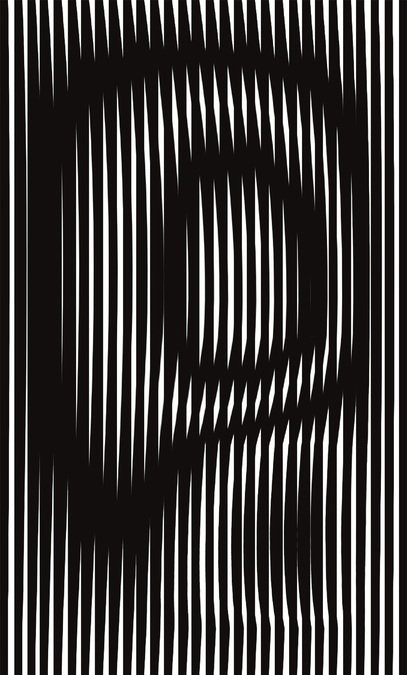Easy Listening: Streaming, AI and our changing relationship with music
Individual music taste has become a path of least resistance, rather than an act of creative discovery – one writer explores how streaming and AI has altered our relationship with music
Over the past few months, I’ve been striving to become a more mindful musical listener, making an effort to experience music as it was originally intended. A rather logical approach was to listen to albums all the way through, letting the music engulf me from the first track to the last. While incredibly straightforward, only upon adopting this habit did I realise that I’d practically never taken the time to do so. Now, I’ve noticed myself becoming more patient, more curious about music; I care more now about experiencing a song as its own individual piece of art, as well as attempting to understand how it fits into a broader artistic narrative of an album or the artist’s discography.
On a sunny afternoon this past July, I popped in my earbuds and pressed play on The Doors’ 1967 album Strange Days. An apt name, for you could certainly describe The Doors’ psychedelic, moody sound as a bit strange. Especially when one factors in lead singer and principal songwriter Jim Morrison’s sporadic screeches, bordering on primal; it serves as a stark contrast to his haunting, ethereal vocals.
I’ve loved The Doors’ music for years, and yet somehow this marked my first listen, in its entirety, to their second studio album. It features some of their classics, such as Love Me Two Times and People Are Strange, as well as a few tracks that I hadn’t come across before. Some of these I was quick to groove along to, while others I found less accessible. After about a minute of Horse Latitudes, I checked to see how much was left, willing a transition into a soft ballad, or a funky, organ-backed beat; most sounds would have been a welcome change from the cacophony. It was starting to sound less like a song and more like it would send me into a panic room. After one minute and 35 seconds, it ceased, and I breathed a small sigh of relief.
The Doors are unusual in the sense that they’ve got tracks that are over in the blink of an eye – a taster of an idea, explosive and then over – as well as others that are long, winding stories. I’ve listened to When the Music’s Over absently, subconsciously, likely skipping it halfway through; its 11-minute runtime is a far cry from a standard radio tune, but certainly no one would ever claim The Doors to be conventional. And so, there I sat, seeing it through. It’s a fascinating song, instrumentally and lyrically, with an energy that ebbs and flows throughout. Yet, once the five, six, ten minute marks hit, I found myself more than ready for the end; for lack of a better phrase, for the music to be over. It makes sense that I’d feel this way, doesn’t it? This is how we've become conditioned by the popular music industry – our ears consistently piqued for the novelty of a new tune; an invisible threshold of time beyond which a song is inevitably deserving of a skip to the next track. In light of this convention, how many of the most popular, prolific artists would dare make music that may not be short, snappy, or radio-worthy?

Illustration: Paul D'Orlando.
Behold the process of popular music developing into an increasingly monotonous sound. Sensibly, the most circulated music on radio and streaming is that which is likely to have the broadest appeal to listeners. This so often manifests as an attention-grabbing tune with a catchy chorus and captivating beat, but within this formula, there can only be so much variety. On one hand, it could be that this trend is caused by consumer demand, and that artists are leaning into this ‘radio sound’ because it has the broadest appeal to listeners. On the other hand, could it instead be that audience preferences are directly reflective of what musical artists have established as a ‘winning formula’ for success (which may also take precedence over artistic liberty)? If listeners have only been exposed to the most accessible music, how could they be expected to have a tendency towards anything else?
I don’t dislike this music; it’s fun, engaging, and usually popular for good reason. However, I do feel that there is danger in the broadening ubiquity and monotony of this ‘radio sound’. First, by adhering to the formula of a catchy radio-worthy track, artists exercise less creativity and in turn, audiences are exposed to less musical diversity. Further, this has conditioned us into perceiving the act of consuming music as something that ought to be easily digestible, thus squandering individuals’ opportunities to challenge themselves to be exploratory and curious as a musical consumer.
Thanks to musical technologies such as streaming services and artificial intelligence (including Spotify daylists), we exercise complete choice over the media we consume. With regards to music, we can leap between artists, genres, decades, even centuries, all without a second thought. It's an incredible phenomenon, having all this music available to us so freely, not to mention an immense privilege. We can access a vast range of artistic expression and, in turn, curate our own collection of this music based on what resonates with us. My concern with this, however, is how dramatically it has altered our relationships with musical consumption. We now have the power to skip a song the second we get bored, to decide we abhor an artist the moment we hear a tune that doesn’t appeal on first listen. We have the power to do all of it so effortlessly – perhaps without even realising it – to create our own echo chambers of music, our own insular ecosystems of preference.
The greatest development in modern musical consumption is the freedom of preference, but perhaps the technologies allowing this are also leading to the downfall of audiences’ creative curiosity and of artistic appreciation. We no longer need to turn on the radio and be patient until a song we like finally comes over the speakers. In the past, we had to listen to myriad music in order to access our own preferences, but now, we can expose ourselves to as narrow a range as we choose. We can lean so stubbornly into preference, we can form opinions with such limited perspective. We are allowed to be as close-minded as we feel comfortable. Having the freedom of choice at our fingertips is wonderful, but it makes the process of listening to music, and developing a musical taste, so convenient, practically effortless; a path of least resistance to enjoyment. How could this not change our relationship with music?

Illustration: Paul D'Orlando.
How are we supposed to define 'good music' if there is no common story, nor common ground for us to stand on? When we have access to such a diverse array of music, how are we to form educated opinions about 'good music' when we're so caught up in our own preferences, when we have such a limited concept of relativity? If we all remain insulated by the limited scope of our own preference, how can we remain open to understanding a range of creative expression; the broader picture of music as an art form? How would we define 'good music' as anything other than our own personal path of least resistance: the music that is the easiest for us to consume?
I was thinking all of this as I made my way through When the Music’s Over. It didn’t initially appeal to me because it didn’t fit into any mould of what I typically listen to. It was beyond my musical comfort zone, hence it felt uncomfortable. However, as I sat listening, I questioned myself and what good music means to me. Good music doesn’t necessarily mean it is the easiest to listen to. David Bowie said that he always made music that he liked, that resonated with him. The central goal was never to please an audience; it was to experiment, to play, to make music he loved.
Perhaps this is the best way to describe good music (of course, some talent is rather key here as well). It’s music that captures the artist, speaks to them and continues to inspire them. Good music makes me curious. It makes me understand an artist a bit more and makes me appreciate the complexities of the artistic process. Just because a song isn’t ‘easy listening’ doesn’t mean that I can’t see its value or its purpose. Good music doesn’t always have to be easy. Maybe it shouldn’t be. In an era where technology seems more prevalent by the day, it's essential that we refrain from relying on it to dictate our approach to music. We must ensure that music stays creative, stays human, and reliance on AI and other technologies – despite its obvious advantages and convenience – will taint this. We have a unique ability as humans to not only create art but appreciate it, and we must ensure that our listening habits reflect our consciousness of this innate privilege.
Be that as it may, listen to as many short, snappy chart-toppers as you desire. As will I. Skip a song if you get bored, then skip another. As will I. At the end of the day, music should be fun. Art should be fun. But I believe it should also inspire you, move you and challenge you. So maybe, put on When the Music’s Over for a change, even if it defies your algorithm. Be provoked, get bored. Or, maybe, get inspired.
